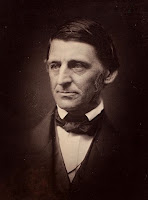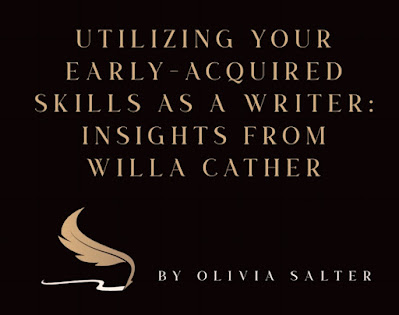The Persistent Path to Mastery: Chinua Achebe’s Wisdom on Writing
by Olivia Salter
Chinua Achebe, one of the most revered figures in literature, captured the essence of a writer's journey with his succinct and profound observation: "I believe myself that a good writer doesn't really need to be told anything except to keep at it." This statement, though simple, holds immense depth and offers invaluable insight into the art and perseverance of writing.
The Value of Persistence
At the heart of Achebe's quote lies the notion of persistence. Writing is a craft that demands continuous effort, unwavering dedication, and a resilient spirit. Achebe’s advice underscores the importance of perseverance in the face of challenges, rejections, and self-doubt. The act of "keeping at it" is essential for growth, improvement, and eventual mastery.
Writers often encounter periods of struggle, where inspiration wanes or criticism stings. Achebe’s words serve as a reminder that these moments are part of the journey. The only real failure is giving up. By persisting, writers can push through obstacles, refine their skills, and develop their unique voice.
The Role of Practice
Achebe's counsel to "keep at it" emphasizes the role of practice in a writer’s development. Writing, like any other skill, improves with consistent practice. Each piece a writer produces contributes to their learning and growth. The process of writing, revising, and rewriting helps hone one’s abilities, fostering a deeper understanding of language, structure, and storytelling.
This continuous practice also leads to discovery. Through regular writing, authors uncover their strengths, identify their weaknesses, and explore new ideas. Achebe’s advice encourages writers to embrace the journey of constant improvement, where each word written is a step towards excellence.
The Importance of Self-Belief
Achebe’s quote also touches on the importance of self-belief in a writer’s journey. By stating that a good writer doesn’t need to be told anything except to keep at it, he implies that the drive and motivation must come from within. Writers must have faith in their abilities and trust in their unique perspectives. This internal conviction is what propels them forward, even when external validation is lacking.
Believing in oneself also fosters a sense of independence. While feedback and guidance can be valuable, writers must ultimately rely on their own instincts and vision. Achebe’s advice champions the idea that true growth and success in writing come from within, driven by an unwavering commitment to the craft.
Embracing the Journey
The path to becoming a good writer is not a linear one. It is filled with highs and lows, moments of clarity, and periods of confusion. Achebe’s wisdom encourages writers to embrace this journey in its entirety. Each experience, whether positive or negative, contributes to the writer’s evolution.
By “keeping at it,” writers learn to navigate the complexities of their craft, develop resilience, and cultivate their unique voice. Achebe’s advice is a call to embrace the process, to find joy in the act of writing itself, and to remain dedicated regardless of the immediate outcome.
In conclusion, Chinua Achebe’s insight that “a good writer doesn't really need to be told anything except to keep at it” is a timeless piece of advice that resonates deeply within the literary community. It highlights the fundamental principles of persistence, practice, self-belief, and embracing the journey.
For aspiring writers, Achebe’s words are both a comfort and a challenge. They remind us that the key to success lies not in seeking external validation or shortcuts but in the simple, steadfast act of writing. By continuing to put pen to paper, writers can navigate the intricacies of their craft, grow in their abilities and ultimately, leave their mark on the world of literature.
About the Author of this Quote
Chinua Achebe; born Albert Chinụalụmọgụ Achebe;16 November 1930 – 21 March 2013) was a Nigerian novelist, poet, and critic who is regarded as a central figure of modern African literature. His first novel and magnum opus, Things Fall Apart (1958), occupies a pivotal place in African literature and remains the most widely studied, translated, and read African novel. Along with Things Fall Apart , his No Longer at Ease (1960) and Arrow of God (1964) complete the "African Trilogy". Later novels include A Man of the People (1966) and Anthills of the Savannah (1987). In the West, Achebe is often referred to as the "father of African literature", although he vigorously rejected the characterization. (Wikipedia)



.jpg)



